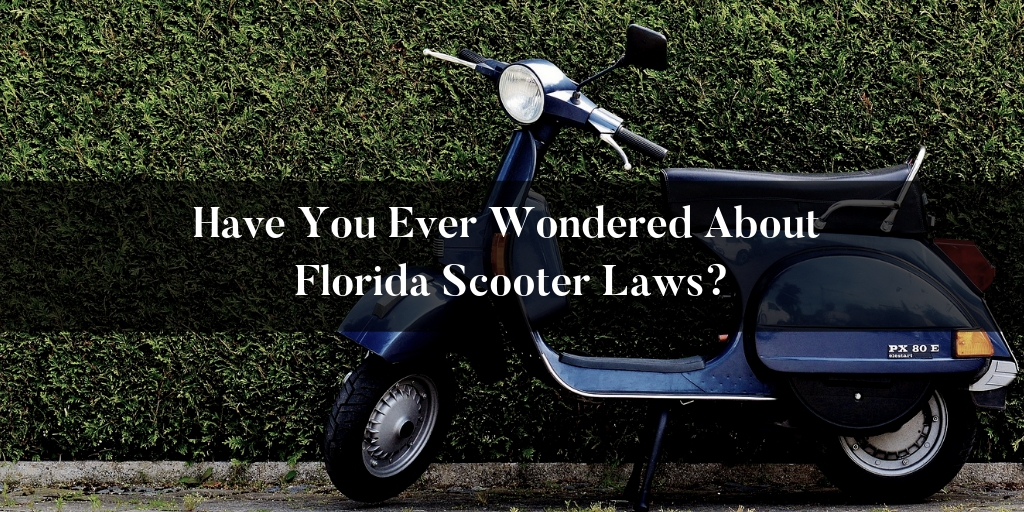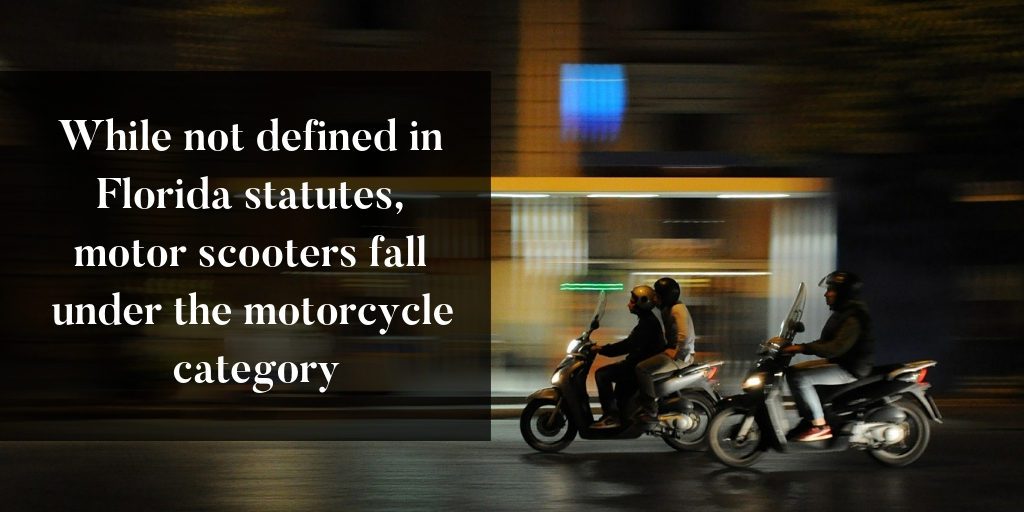
Have You Ever Wondered About Florida Scooter Laws? Well, look no further! This week, a man driving a scooter caused a car accident after driving on Interstate 75 for an hour. In light of this news, it felt appropriate to take a look at Florida’s scooter laws and what they have to say about keeping riders safe on our roads.
Scooter Driver Survives Crash on Interstate 75
This Tuesday, a 32-year-old man driving a scooter caused an accident on I-75. The man was driving the scooter in the early morning on the southbound lane. He was struck by a car from behind after the car’s driver attempted to pass the slow-moving scooter.
The scooter driver was thrown from his vehicle and landed on the shoulder of the road. While he survived the crash, he suffered severe injuries in the accident. He was later transported to Tampa General Hospital, according to state troopers.
Florida Scooter Laws: Motor Scooters and Legal Guidelines
Before we take a look at what Florida law says about scooter drivers, it’s worth clarifying what a motor scooter is. There are a few categories of two-wheeled motorized vehicles in Florida law.
Title XXIII, Chapter 320 of the Florida statutes lays out the legal definitions of two of these categories. According to chapter 320:
- A motorcycle is “…any motor vehicle having a seat or saddle for the use of the rider and designed to travel on not more than three wheels…”
- A moped is “…any vehicle with pedals to permit propulsion by human power…with a motor rated not in excess of 2 brake horsepower and not capable of propelling the vehicle at a speed greater than 30 miles per hour…”
There is no definition for a motor scooter in chapter 320, and it seems to exist in a bit of a gray area. According to the Florida Highway Safety and Motor Vehicles, a motor scooter fits the definition of a motorcycle. There is some debate over how they are affected by law.
What Does This Mean?
While they fit the definition of a motorcycle under Florida Statutes, most scooters we see on the roads have engines under 50cc, similar to a moped. Because of this, motor scooters in the state of Florida do not require the operator to hold a motorcycle license.

Many scooters you see on the road seem to be closer to mopeds. They have engines less than 2 brake horsepower limited speed. However, under Chapter 320, they would need to have pedals to be considered a moped.
You can see how this gets a little confusing. While they seem to meet many of the legal definitions of a motorcycle and a moped, they fall short of a clear definition as either.
Safe Practices for Scooter Drivers
It seems like a no-brainer, but you should keep your motor scooters off our state’s highways. Their small engines and low top speeds make them a hazard to all of the other vehicles on the roads.
Under Florida law, no vehicle may be ridden on an interstate or highway if it is under 5 brake horsepower and incapable of maintaining a 40 MPH speed.
Scooters on the highways lead to many potential issues, including:
- Impeding traffic
- Increasing rates of accidents
- Higher rates of serious injuries
If you’re a scooter driver in the state of Florida, I have a few recommendations for you.
- Always wear a helmet
Even if the law does not require helmets for scooter drivers who maintain a speed under 30 MPH: Don’t leave home without one. - Wear eye protection
Many scooters lack any form of a windshield that would prevent road debris from hitting their driver. This could lead to injury and cause serious accidents. - Stick to slower roads
50cc scooters, even those that can travel above 30 MPH, can be a traffic impediment. In the case of this week’s accident, passing traffic led to an accident and severe injuries. This all could have been avoided if the scooter driver had stuck to roads with slower-moving traffic.
Contact Brooks Law Group for Assistance regarding Florida Scooter Laws
If you or a loved one has suffered injuries on a motorcycle or motorscooter, you need experienced legal counsel. The Brooks Law Group has been serving the state of Florida since 1992. We have the track record you need to pursue compensation.
Our attorneys and staff work to provide the best client experience possible. If you’ve sustained injuries in the state of Florida, connect with a law firm that cares. For your free case evaluation, call our offices at 1-800-LAW-3030 or visit us online today!














